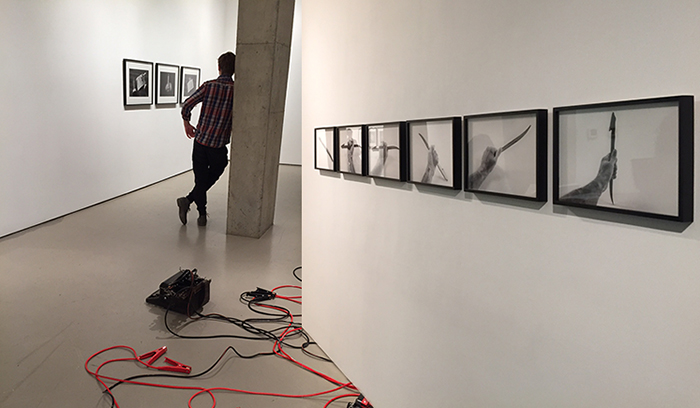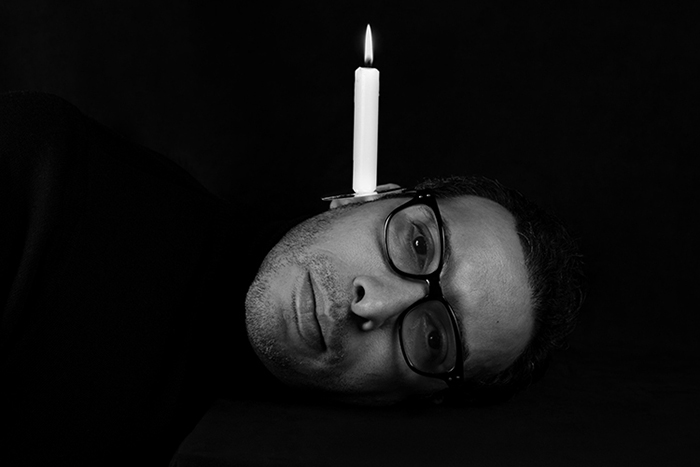
- 'tis the season
- 3rd Ward
- 8 x 10
- 8 x 10 mag
- 31 Women in Art Photography
- 2009 Project Grant Recipients
- 2010 Project Grant Recipients
- 2011 Project Grant Recipients
- 2012 Project Grant Recipients
- Advertising
- After Color
- Amani Olu
- Amy Arbus
- An-My Le
- Andreas Laszlo Konrath
- Andres Serrano
- Andrew Lichtenstein
- Angela Strassheim
- Anna-Sophie Berger
- Anna Bauer
- Anna Beeke
- Annabel Mehran
- Anne Menke
- Aperture Foundation
- Archival Pigment Printing (Inkjet)
- B+W Silver Gelatin Printing
- Barbara Crane
- Ben Fink Shapiro
- Ben Grieme
- Bill Armstrong
- Bill Jacobson
- Blair Getz Mezibov
- Bonni Benrubi Gallery
- Boogie
- Bravin Lee Programs
- Brea Souders
- Brian Nice
- Bruce Silverstein
- C-41 Film
- Canteen Magazine
- Cao Fei
- Cati Borruso
- Charmichael Gallery
- Chris Rhodes
- CLAMPART
- Colnaghi
- Compsiting
- Conde Nast Gallery
- Conde Nast Traveller
- Conventional C-Printing
- conventional c-prints
- Cosmopolitan Magazine
- Cristina De Middel
- Daniel Reich Gallery
- Danny Clinch
- Dave Krugman
- David Battel
- David Benjamin Sherry
- David Gahr
- David leventi
- David Sherry
- David Uzochukwu
- Debby Hymowitz
- Denny Renshaw
- Diana Zeyneb Alhindawi
- Digital-C Printing
- digital imaging
- Dominique Nabokov
- Editorial
- Edwynn Houk Gallery
- Elad Lassery
- Elinor Carucci
- Emiliano Granado
- Emmanuel Fremin Gallery
- Envoy Gallery
- Erica Allen
- Erika Larsen
- Eva O'Leary
- exhib
- Exhibition Mounting
- Exhibitions
- Fabiola Menchelli
- Fader Magazine
- Film Processing
- Fotografiska New York
- Framing
- Frederic Lagrange
- Frédéric Brenner
- Galerie Karsten Greve
- Galerie Number 8
- Gavin Brown's Enterprise
- Griffin Museum of Photography
- Heather Darcy Bhandari
- Hello Mr.
- Hey Hot Shot
- Higher Pictures
- Humble Arts Foundation
- Imaging
- James Clar
- James Fuentes LLC
- James Mollison
- Janaina Tschape
- Jane Lombard Gallery
- Janet Borden Gallery
- Jan Staller
- Jason Kraus
- Jen Beckman Gallery
- Jennifer Karady
- Jennifer Livingston
- Jennifer Loeber
- jessica Eaton
- Jonathan Mannion
- Joni Sternbach
- Josh Olins
- Joss McKinley
- JTT Gallery
- Juergen Teller
- Julia Comita
- Julie Saul
- Justine Kurland
- Justin James King
- Karen Irvine
- Katherine Newbegin
- Kaufman Repetto
- Ken Regan
- Kodak
- Laura Levine
- Lawrence Beck
- Leica Gallery
- Leslie Fritz
- Liz Clayman
- Lombard-Freid Projects
- Look Book
- Louisa Marie Summer
- Magazine Covers
- Manjari Sharma
- Mark Leckey
- Martin Schoeller
- Max Farago
- Max Snow
- Meredith Danluck
- Michael Buhler-Rose
- Micheal McLaughlin
- Milagros de la Torre
- Mitchell Innes and Nash
- Mitch Epstein
- MIxed Greens
- Moab Paper
- Modern Weekly
- MoMA
- Morrison Hotel Gallery
- Mounir Fatmi
- Mounting
- Muse Magazine
- Museum Boxes
- Museu Oscar Niemeyer
- MZ Wallace
- Natasha Gornik
- New York Magazine
- Nicholas Vreeland
- Nike
- OH WOW Gallery
- Olivia Bee
- Paulette Tavormina
- Paul Kasmin Gallery
- Pedro Arieta
- Penelope Umbrico
- Peter Funch
- Philip Andelman
- Phillip Lim
- Picto
- PROXYCO Gallery
- Purple Magazine
- Ramis Barquet
- Raymond Depardon
- Reed Krakoff
- Renwick Gallery
- Rep.Limited
- Retouching
- Richard Finkelstein
- Richard Mosse
- Richard Renaldi
- Rick Wester Fine Art
- Rika Magazine
- Robb Hann
- Robert Klein Gallery
- Robert Levin
- Robert Mann Gallery
- Robert Polidori
- Robin Rice Gallery
- Rodney Smith
- Rolling Stone
- Ruth Orkin
- Scanning
- Sebastiaan Bremer
- SF Camerawork
- Sharif Hamza
- Sies + Höke Galerie
- Simon Colley
- slideluck
- Some Days ...
- Sonnabend Gallery
- Sony Square NYC
- Stefan Ruiz
- Steven Kasher Gallery
- Sunny Suits
- Susan May Tell
- Sze Tsung Leong
- Talia Chetrit
- Tarter Sauce
- Tema Stauffer
- the art street journal
- The L Magazine
- The Morrison Hotel Gallery
- The New Yorker
- The New York Times
- The New York Times Lens Blog
- The nicest things ...
- Theo Wenner
- The Propeller Group
- Thomas Dozol
- Tiana Markova-Gold
- Tim Barber
- Time Magazine
- Tina Barney
- T Magazine / The New York Times
- Trisha Donnelly
- Trunk Magazine
- Valario Spada
- Vogue Nederland
- WIP / Lightside Individual Project Grant
- Women in Photography
- Yossi Milo Gallery
- Zoe Crosher
- Zoe Ghertner
September 7, 2017
Mounir Fatmi at Jane Lombard Gallery
Survival Signs
Mounir Fatmi
Jane Lombard Gallery
September 7 – October 21
Mounir Fatmi: Calligraphy of Fire, from Survival Signs, Jane Lombard Gallery, September, 2017
32 x 52.5 archival pigment print
From the Jane Lombard Gallery press release:
Jane Lombard Gallery is pleased to present Survival Signs, Mounir Fatmi’s third solo exhibition with the gallery. His work directly addresses the current events in our world and speaks to those whose lives are affected by restrictive political climates. “Survival signs” can also be seen as cultural signs, images, objects, experiences, and their connections and relationships to our everyday life. Is our society fluid, open and accepting, or the opposite? Several of the works in the exhibition teeter along a fine line of interpretation; are they revealing moments of construction or destruction, lightness or darkness? The artist presents his works as signs of survival; elements that allow him to resist and understand the world and its changes.

Mounir Fatmi: Survival Signs, Jane Lombard Gallery, September, 2017
We were super-happy that Jane Lombard Gallery asked us to print selections for Mounir Fatmi’s Survuval Signs exhibition … but we were truly floored by his “open letter” regarding his decision not to travel to Trump’s new USA:
Open letter from Mounir Fatmi
As you can see, it’s been hard for me to write this letter. I had to wait until the last minute. I needed an emergency- the same emergency that drives me to create art in any circumstance, like an ambulance that takes every possible risk in order to save a life. In this case, it’s my life I’m talking about.
I left Morocco for good in 1999 in search of a freedom of speech I couldn’t find at home.
I had to cut off all ties with my father, my family, my neighborhood and ultimately my country. I wanted to take a step back, to get as far as possible from my cultural context.
I wanted to experience the world. Meet people. Read the forbidden books. Discovering the Beat generation and its authors allowed me to get away. My encounter with Paul Bowles in Tangiers was decisive. Reading Kerouac, Ginsberg, Burroughs, discovering Brion Gysin’s calligraphy… All this nourishment allowed me to live, to hope and to dream of a better world.
While I was studying in Rome, I discovered Fra Angelico’s small painting from the 15th century, The Healing of the Deacon Justinian. In the painting, the brothers Damian and Cosmas graft the leg of a black man onto the white body of Deacon Justinian. After just one look at this painting, I understood that I was that black leg. I was surprised that everyone around me only saw the perspective, the light and the composition in the painting. I was the only one to see this black leg. This alien element has been living within me and made me who I am today. A survivor. An immigrant worker. A permanent exile.
I haven’t changed nationalities. I still travel with my Moroccan passport, which is a work of art in itself. That passport is filled with visas from several countries where I’ve shown my work these last few years. Traveling with a Moroccan passport is an adventure. I’m never sure I’ll get through customs. In addition to the fatigue of traveling, I have to face the stressful interviews by customs agents. One of the most traumatizing experiences I’ve had was with American customs, a few years back. After three hours of questioning and getting my fingerprints and my picture taken, the agent presented me with a bible and asked me to swear that everything I had told him about me and my relatives was the truth. I told him that the reason I was in this situation in the first place was because I’m supposed to be a Muslim and therefore I didn’t see why he was giving me a bible to swear the truth.
Without acknowledging the remark I had just made, he asked me again to swear on the bible, looking straight at me this time. I put my hand on the bible. He asked me to raise the other hand and say: I swear. I swore. I just didn’t want him to send me off to Guantanamo under any pretense. That instant was for me a moment of extreme lucidity. No more illusions. I live in a world I am not able to understand.
Of course the customs agent was only doing his job, and his job required him to be afraid of me. His fear wounded me, and I carry it like a scar to this day.
I wanted to help him, but I couldn’t. The more I tried to reassure him, the more suspicious I grew to him.
I know that I am just a speck of dust in this machine. A black leg grafted on the body of another man. What I’m relating in this letter is nothing compared to what thousands of refugees endure, dodging death as they hope for a better world for them and their children. I’ve always believed that America could be a part of that world. That heart capable of welcoming us all and warming us. My illusions were shattered the night the result of the latest election was announced. My disappointment was huge. I realized that we may never see again this free world we dreamed of so much.
Today, I don’t have the strength nor the courage to offer myself to a terrorized customs agent faced with a poor Arab artist. I know the situation of immigrants in the USA has gotten worse since the latest immigration laws. That getting through the border is more and more difficult. This time I would be incapable of swearing on any holy book or of accepting any more humiliations. I must protect whatever little hope I have left. That hope is my survival.
I trust you in presenting my work to the gallery’s public. I hope one day I can find the courage to come and see you.
Mounir Fatmi, August 18th, 2017
Tags: Archival Pigment Printing (Inkjet), Exhibition Mounting, Exhibitions, Imaging, Jane Lombard Gallery, Mounir Fatmi
